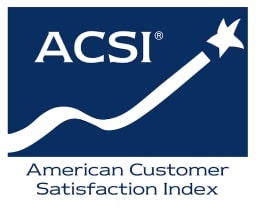ERCOT FAQs
During summer and winter, electricity usage across the state is at its highest. This is why ERCOT is most likely to issue Energy Alerts during these times of year. If you’re unfamiliar with ERCOT and ERCOT Alerts or why you need to be aware of them, the FAQs on this page are a great way to learn more.
Throughout the state, summer is a time of intense electric usage, especially through the week, between 3 and 7 p.m. In addition to this being the hottest part of the day, it’s also when people are arriving home from work and school and are cranking down the AC, turning on the TV, starting dinner, running the dishwasher and so forth.Winter is also a time consumers pull much energy when heating their homes. Winter peak demands tend to occur during the early morning from 5 to 9 a.m. and early evening from 4 to 9 p.m.
Power shortages between generators and suppliers do happen across the Texas grid. High energy demand at the local level usually doesn’t have much impact statewide; however, an all-at-once spike in demand across the Texas grid that approaches or exceeds total, statewide capacity can have serious consequences for availability. Such spikes are a very real threat during the height of Texas summers or on occasions of extreme winter temperatures. One of ERCOTS’s most important tools for helping restrain usage across the grid is known as the four coincidental peaks (4CP).
You may have read about the four yearly coincidental peaks in The GVEC Review or here on our blog. The 4CPs occur one per month every June, July, August and September. These peaks happen when demand for electricity across the statewide grid reaches its highest point. ERCOT bases the next year’s share of transmission costs for each Texas provider on the provider’s share of grid demand during these four peaks. It’s important, then, for each consumer within a provider’s territory to restrain usage as much as possible during 4CPs to keep rates down.As a way to help our members reduce usage during the 4CPs, GVEC has partnered with ecobee and Nest® to offer Peak-Time Payback, our latest and most rewarding peak-time usage program. For more information on how you can help reduce GVEC’s overall grid demand during ERCOT’s 4CPs—and get paid doing it—visit our Peak-Time Payback page.ERCOT does have plans in place, including a reserve power supply, in the event that statewide power consumption comes close to equaling or surpassing what’s generated and delivered. The agency’s system is made up of a preemptive Conservation Alert and three Energy Emergency Alerts (EEA). These alerts increase in severity with each new level.
At this level, ERCOT aims to raise public awareness about shrinking reserves and the need to actively conserve energy to prevent emergency conditions.Emergency Alerts
Level 1: The first EEA level is Conservation Needed. ERCOT issues this alert when operating reserves drop below a target threshold. This level puts providers on notice to take preliminary measures to curb demand before the situation worsens.Level 2: If conditions worsen, ERCOT will next issue an EEA Level 2 – Conservation Critical. At this level, providers are permitted to reduce their power load by interrupting supply to large commercial and industrial accounts. The contracts these clients sign stipulate that such measures may be necessary in an emergency.Level 3: If power supply declines further, ERCOT will then declare an EEA Level 3 – Rotating Outages in Progress, the final alert level. At this level, ERCOT will require electricity providers throughout the state to begin introducing temporary outages at the local distribution level—also known as rolling brownouts or rotating outages.
ERCOT, Rotating Outages and Level 3 EmergenciesWhen demand for electricity in Texas is high and strains the power grid, ERCOT and all electric utilities across the ERCOT region, have outlined a process for load shedding, or controlled service interruptions, to prevent a complete blackout. There are three Energy Emergency Alert (EEA) levels:
1 – Conservation Needed
2 – Conservation Critical
3 – Rotating Outages in Progress
At Level 3, the need to reduce demand has become critical. ERCOT will instruct electric providers across the state— including GVEC—to reduce demand through controlled service interruptions (also known as rotating outages). This mandatory demand reduction, known as load shedding, lasts until power reserves return to acceptable levels.
State law requires GVEC to comply with ERCOT’s directive for rotating outages. As such, GVEC will begin taking electric circuits out of power as needed to shed specific amounts of load as defined by ERCOT. After one set of planned outages is complete, the circuits taken out of power will be brought back up as another is taken out. This process will continue until ERCOT lifts the emergency alert status.
What GVEC Members Should Expect During a Load Shed Event
- GVEC receives no prior notice before a Level 3 Alert and must initiate outages within minutes. We cannot pre-notify members of controlled service interruptions. Therefore, GVEC members should assume they could lose power without advance warning. Additionally, the length of a load shed event is impossible to predict and is determined by ERCOT, based on real-time power supply conditions across the grid.
- GVEC will attempt to keep continuous power flowing to organizations who provide critical community support during an emergency. However, these organizations are not exempted from controlled service interruptions. Examples include hospitals, certain medical facilities, police and others.
- Oil, gas and pipeline operators that provide Critical Load support to the electric system during an emergency, and approved by The Railroad Commission of Texas (RRC) (working in conjunction with ERCOT), will also receive priority. However, these organizations are also not exempted from controlled service interruptions. Organizations may apply for Critical Load status by completing RRC Form CI-D, Acknowledgement of Critical Customer/Critical Gas Supplier Designation and Form CI-X, Critical Designation Exception Application, using the RRC Online System at https://webapps.rrc.texas.gov/security/login.do. Hard copy form or email form submissions are no longer accepted. For additional information, email GVEC at criticalload@gvec.org or call 800.223.4832.
- GVEC’s residential members classified as needing Critical Care or as having a Medical Necessity cannot be exempted from rotating (or other) outages. GVEC strongly encourages any member who needs constant power for life-sustaining equipment to arrange for alternate power during any event in which an outage may occur.
GVEC members may apply for Medical Necessity status by completing a Medical Necessity Form. This form establishes the possibility of flexible account payments based on medical necessity as determined and attested to by a physician. However, it’s important to note that this form relates only to delayed disconnection of service due to non-payment and does not provide an exemption from rotating (or other) outages. To obtain this form, call GVEC Customer Service at 800.223.4832 or visit any of GVEC’s five Customer Service Offices. Completed forms can be emailed to info@gvec.org or returned to any GVEC Customer Service Office. An updated Medical Necessity Form must be submitted with a current physician verification every 24-months from the initial date to maintain status.
- During an ERCOT Conservation Alert or a Load Shed Event, Members Should Consider the Following Energy Saving Tips:
- Set thermostats to 68 degrees in winter and 78 in summer—or as low or high as is tolerable. Each degree you raise your thermostat in summer or lower it in winter can save up to 4% on monthly heating and cooling costs.
- For those with electric water heating, lower your water heater to 120 degrees or lower.
- Avoid the unnecessary use of appliances, lighting and electrical equipment—especially during peak usage times from 6 to 9 a.m. and 3 to 7 p.m.
- For more energy saving tips, click here.
- Want more information from ERCOT? Sign up for ERCOT’s Texas Advisory and Notification System (TXANS):
- TXANS is ERCOT’s early notification tool used in periods of higher demand. Find grid condition levels as well as other information and sign up for alerts at TXANS (ercot.com).
GVEC works year-round to be ready to respond as quickly as possible in the event of any type of service interruption. Cooperative members can rest assured knowing we’re on the job 24/7, 365 days a year. To stay up-to-date on Cooperative alerts, follow us on Facebook, X (formerly known as Twitter), Instagram (@GVECsocial) or LinkedIn (GVEC), and periodically check back here at our website.
ERCOT Efficiency Tips for Summer
Since summer is the one of the year’s highest electricity-use seasons, conserving energy wherever possible is crucial—especially during peak times (see “What is 4CP?” above).
Here are some tips for helping conserve through the heat of South Central Texas.
ERCOT Efficiency Tips for Winter
Although most people think of summer as the season of extreme temperatures in South Central Texas, winter often hosts significant rises in electricity consumption as people warm their homes when temperatures drop.
Here are some tips to help conserve energy during winter weather.


